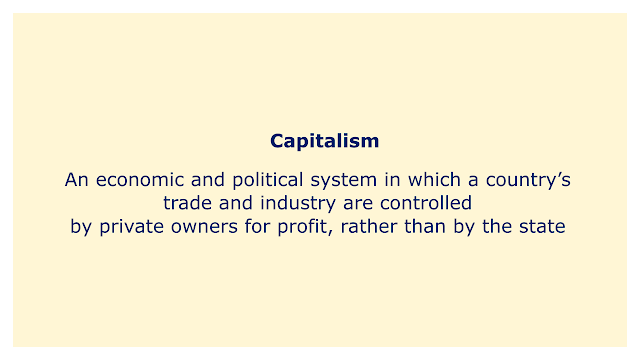 |
| Image: Moneybestpal.com |
Capitalism is an economic and political system in which a country’s trade and industry are controlled by private owners for profit, rather than by the state. Private ownership of capital goods, such as land, equipment, factories, and money, free markets where prices and output are determined by supply and demand, a competition where businesses and consumers aim to maximize their benefits, and wage labor where employees sell their labor power to capitalists in exchange for payment are characteristics of capitalism.
As feudalism crumbled and trade and commerce increased in the 16th century, capitalism began to emerge in Europe. With the Industrial Revolution, the expansion of banking and finance, and the growth of imperialism and colonialism, capitalism saw additional development throughout the 18th and 19th centuries. The 20th and 21st centuries have seen many changes and variants in capitalism, including welfare capitalism, state capitalism, neoliberalism, and global capitalism.
Efficiency, creativity, diversity, growth, and the promotion of personal liberty, autonomy, and opportunity have all been lauded as virtues of capitalism. Along with its alienation, commodification, and consumerism, capitalism has also come under fire for its inequality, exploitation, instability, and damage to the environment. Alternative political and economic systems including fascism, socialism, communism, and communism have all put the capitalist system under pressure.
